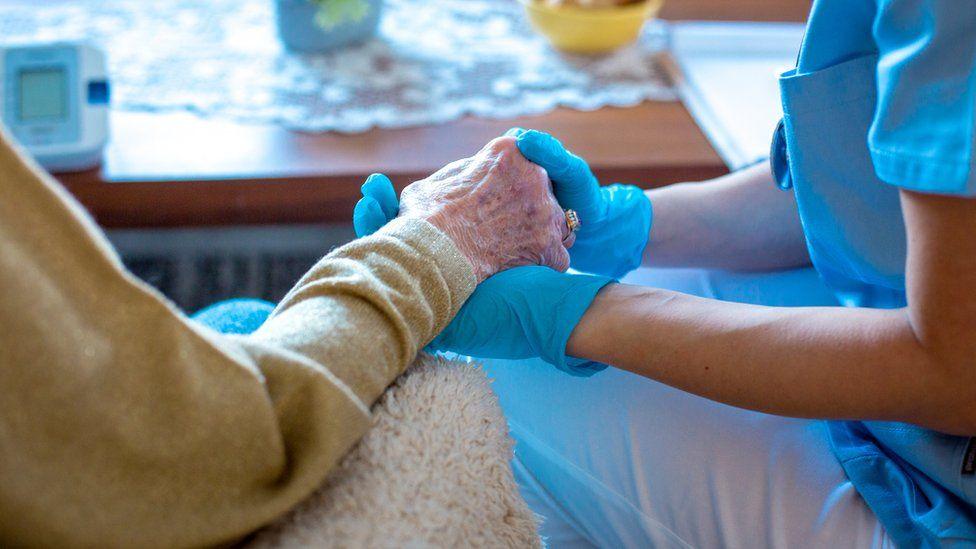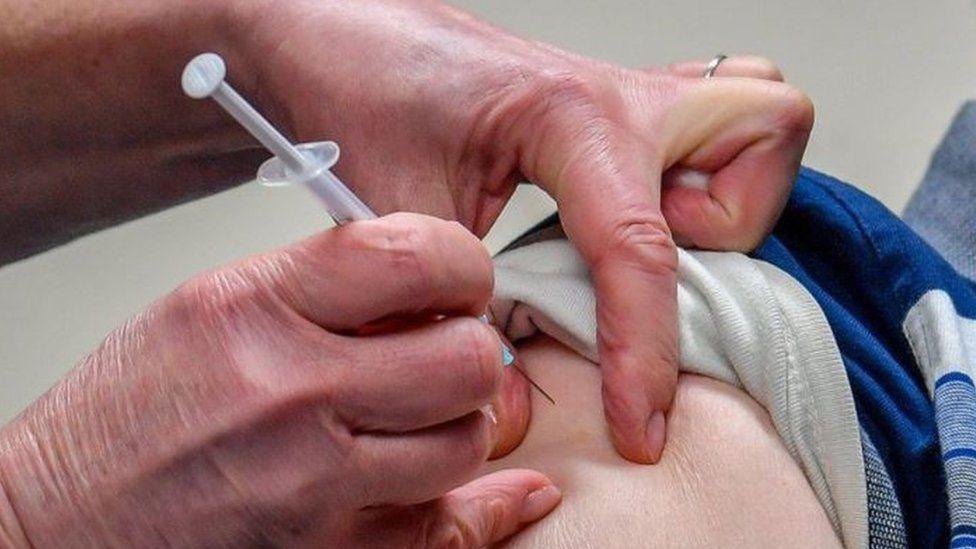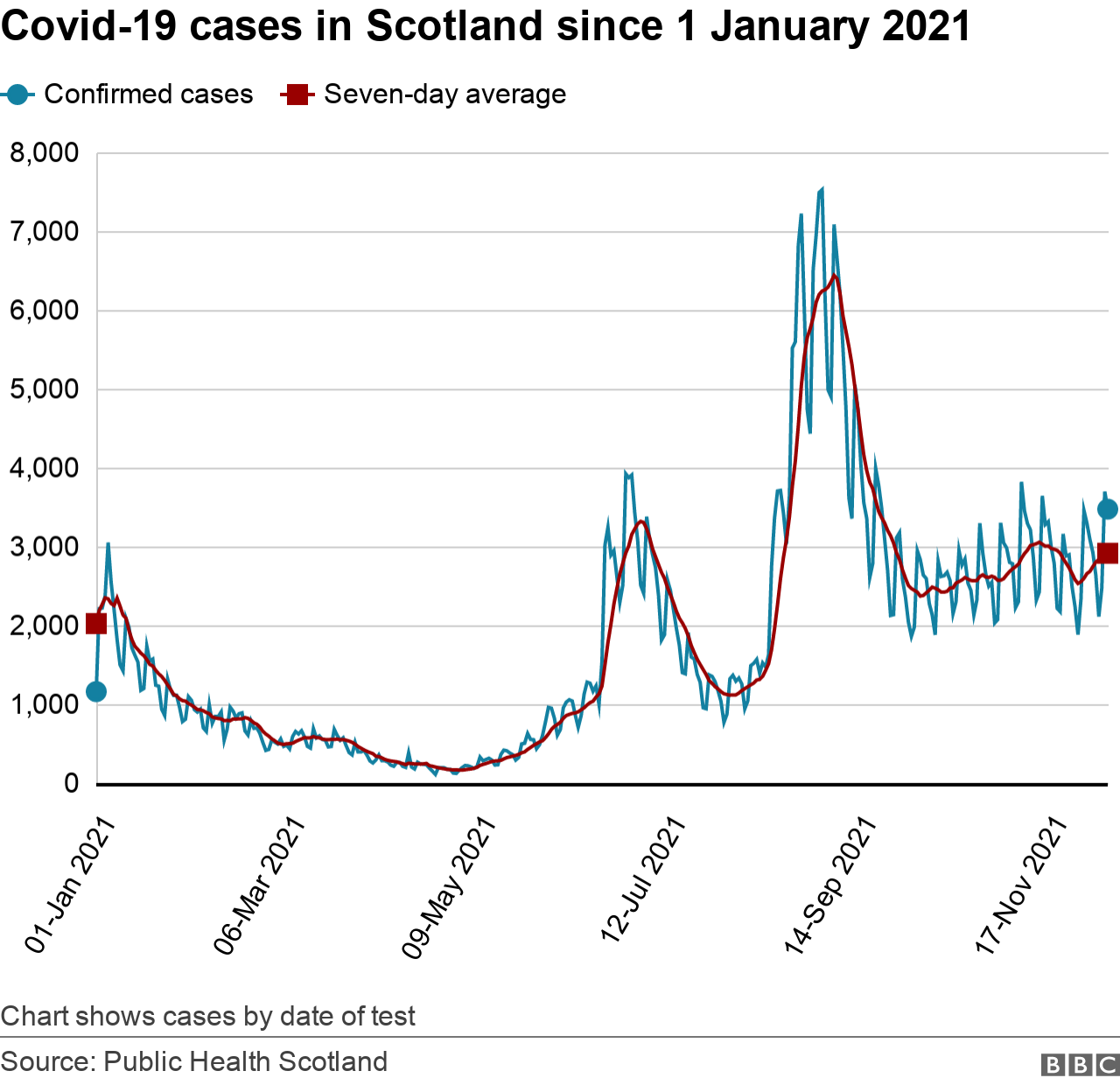Covid in Scotland: Care staff can get booster 'without losing wages'
- Published

Vaccine booster uptake is lower among social care workers than in other sectors
Social care staff who attend vaccine appointments during working hours will not need to lose wages, the Scottish government has said.
Health Secretary Humza Yousaf said booster uptake was lower among social care workers than other sectors.
He said a booster was "crucial" for staff working with vulnerable people.
Financial support will be given to employers so staff can receive booster jabs without having to sacrifice paid hours or annual leave days.
Among social care staff, only 47.7% of frontline social care workers and 54.8% of care home staff have received a booster vaccine.
This compares to an uptake figure of 72% among frontline healthcare workers.
The health secretary said financial support will be available for adult care providers who incur additional costs if employees are vaccinated in working time.
Mr Yousaf said workers should seek a booster vaccine "as soon as possible".
He added: "Getting your booster is even more important with the emergence of the Omicron variant.
"I'm very grateful to all social care workers for their resilience and ongoing commitment during what I know continues to be a very difficult time.
"However we know that the rate of take up among those working in care homes and social care is not as high as in other sectors.
"It is crucial, especially for those working with some of our most vulnerable citizens, that you get your booster if you have not already done so."

Financial support is available for adult care providers if employees are vaccinated in working time
Social care are also being asked to undertake daily lateral flow testing in addition to a weekly PCR test.
The Scottish government has a dedicated online vaccine booking portal for health and social care workers, external.
Meanwhile, care home residents in England will be allowed only three visitors and an essential care giver under new guidance announced yesterday to slow the spread of Omicron.
The UK Department of Health said the measures, which begin on Wednesday, were needed to "balance the current Covid-19 risk and the need to keep people safe".
Scientists have warned that the UK is facing a substantial wave of Omicron infections in January without further restrictions.

Deputy First Minister John Swinney said ministers were "wrestling with the challenge" of restrictions around the virus variant.
He told BBC Scotland's The Sunday Show that Omicron was "galloping through Scotland" and that discussions were taking place over the weekend before the Scottish cabinet this week.
He said the Scottish Parliament would be updated on Tuesday afternoon on any further measures to be announced.
"We will take steps we believe are proportionate to suppress the latest strain," he said.
"If we act quickly and early we have got the best chance of suppressing the virus and giving ourselves as much opportunity as possible to avoid restrictions."
He added: "In the space of a week Omicron has changed from being 2% of cases to yesterday being 18%, so the doubling rate is just over 2 days compared to earlier in the virus when that was 14 days."
"Omicron is coming towards us at a much more aggressive rate and pace than any other variant of the virus."
There were 4,087 new cases of Covid reported on Saturday, a rise on the recent daily average of about 2,800 cases.